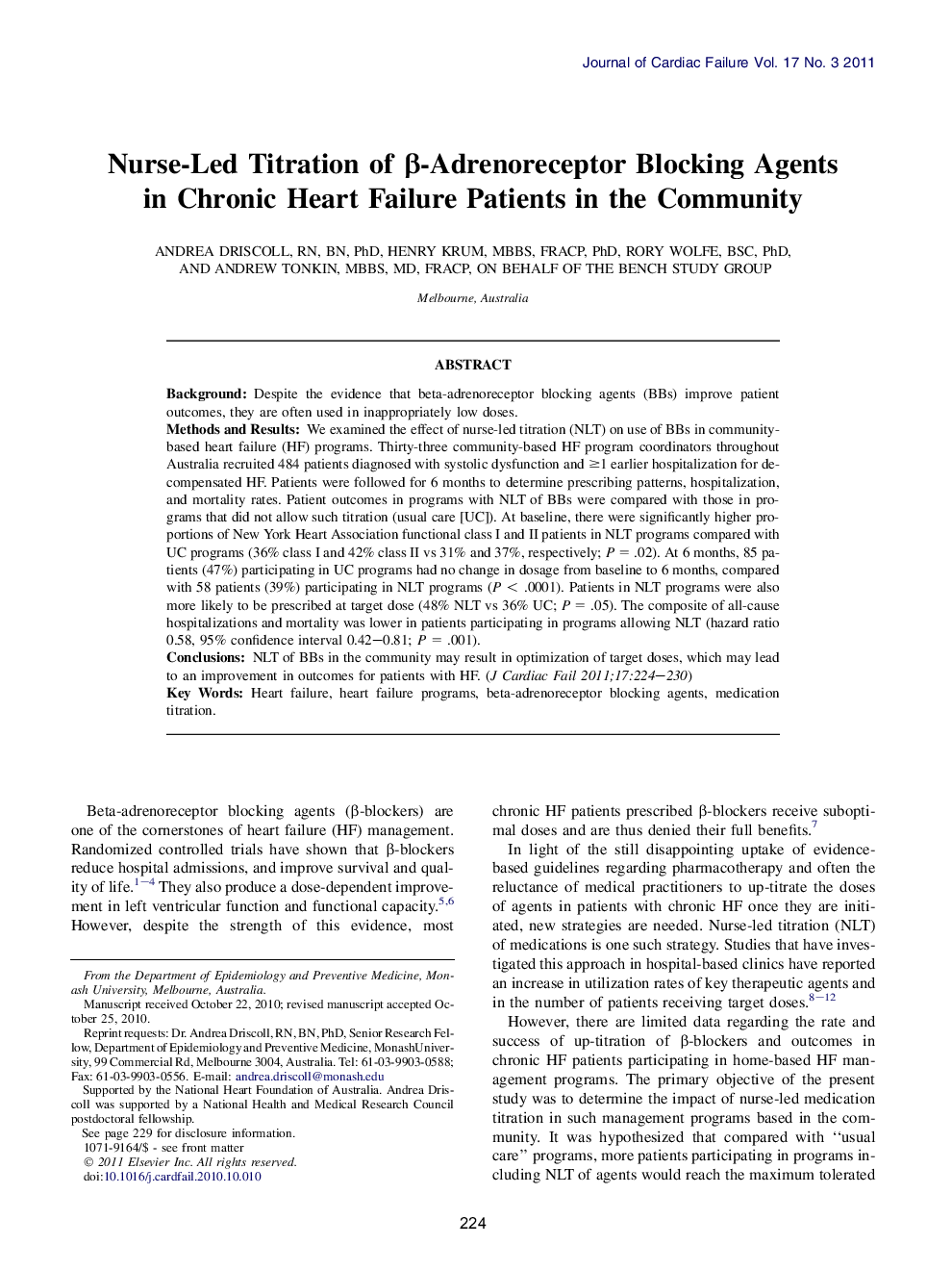| Article ID | Journal | Published Year | Pages | File Type |
|---|---|---|---|---|
| 2961227 | Journal of Cardiac Failure | 2011 | 7 Pages |
BackgroundDespite the evidence that beta-adrenoreceptor blocking agents (BBs) improve patient outcomes, they are often used in inappropriately low doses.Methods and ResultsWe examined the effect of nurse-led titration (NLT) on use of BBs in community-based heart failure (HF) programs. Thirty-three community-based HF program coordinators throughout Australia recruited 484 patients diagnosed with systolic dysfunction and ≥1 earlier hospitalization for decompensated HF. Patients were followed for 6 months to determine prescribing patterns, hospitalization, and mortality rates. Patient outcomes in programs with NLT of BBs were compared with those in programs that did not allow such titration (usual care [UC]). At baseline, there were significantly higher proportions of New York Heart Association functional class I and II patients in NLT programs compared with UC programs (36% class I and 42% class II vs 31% and 37%, respectively; P = .02). At 6 months, 85 patients (47%) participating in UC programs had no change in dosage from baseline to 6 months, compared with 58 patients (39%) participating in NLT programs (P < .0001). Patients in NLT programs were also more likely to be prescribed at target dose (48% NLT vs 36% UC; P = .05). The composite of all-cause hospitalizations and mortality was lower in patients participating in programs allowing NLT (hazard ratio 0.58, 95% confidence interval 0.42–0.81; P = .001).ConclusionsNLT of BBs in the community may result in optimization of target doses, which may lead to an improvement in outcomes for patients with HF.
